
When Cale Ledford was a junior in college, he decided to seek out therapy.
His anxiety, which stemmed from the expectation to be successful in a high-pressure environment like the University of Georgia, had worsened. At first, Ledford told himself that these feelings would simply get better, so he pushed them away — just like many young men in his position.
“I think there’s that stigma that’s put into your brain at a young age, especially for boys, about being vulnerable and being open about your emotions in a way that is really unhealthy,” Ledford said.
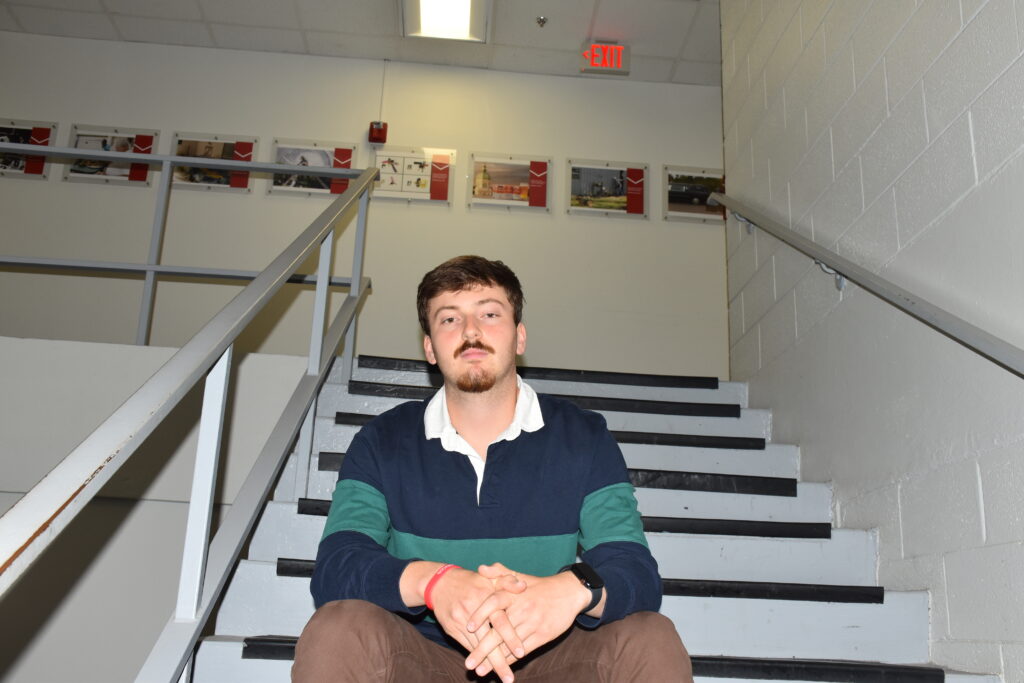
Ledford grew up in a supportive household that welcomed emotions, recalling how he would even sometimes see his dad cry. However, many young men are not as fortunate.
I don’t really think I had that archetype where it was like, ‘Oh my gosh,’ like ‘you can’t show any emotion at all,’” Ledford said. “But, as I’ve gotten older…a lot of the guys that I know now had that kind of upbringing.”
According to the Anxiety and Depression Association of America, nearly one in 10 men experience anxiety or depression. According to the National Library of Medicine, 6 million men are affected by depression in the U.S. every single year. Depression and suicide are both ranked as a leading cause of death among men, with men dying by suicide at a rate four times higher than women.
Despite these statistics, men’s mental health often goes untreated because they are far less likely to seek help than women. Less than half of the men struggling with their mental health will receive treatment for it.
What ‘The Greats’ Won’t Tell You
According to the National Library of Medicine, American culture has created a standard for masculinity that is harmful to men’s mental health.
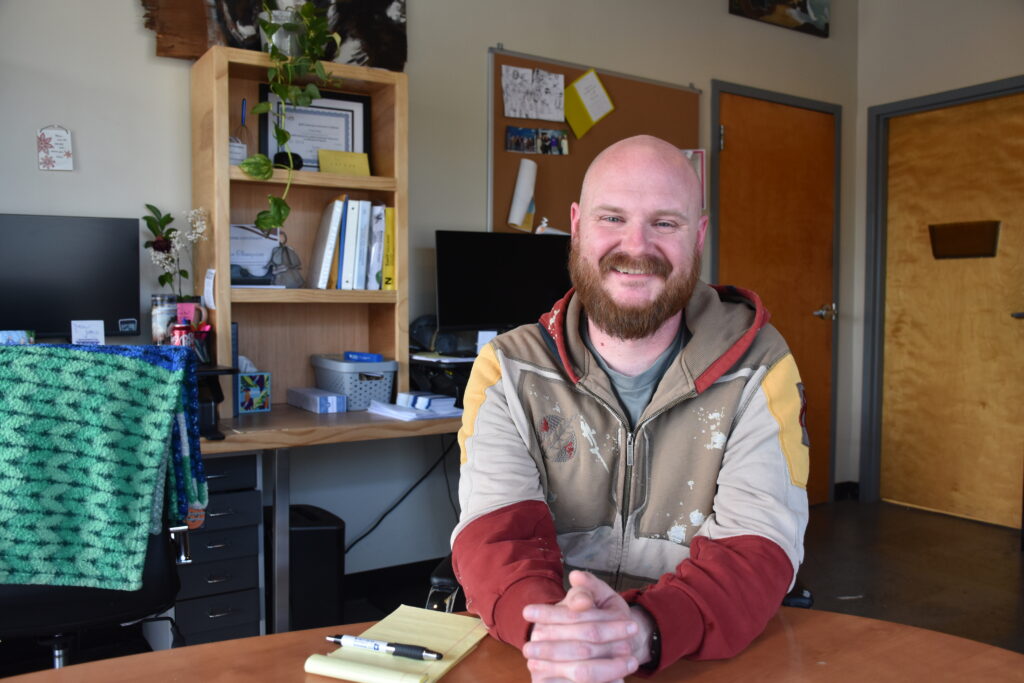
Corey Jones is the coordinator and facilitator of the Question, Persuade, Refer (QPR) suicide prevention program at Nuçi’s Space, a nonprofit organization in Athens, whose mission is to prevent suicide.
Jones recalled that when he was growing up, the world idolized men who hid their negative feelings and flaunted their toughness, like the war veterans seen in movies like “Saving Private Ryan.”
According to Jones, these men were considered “the greats.”
As a young person that grew up experienced to that kind of media, you internalize that,” Jones said. “‘These guys are the greatest generation, these are heroes to young men, and they didn’t deal with it.’”
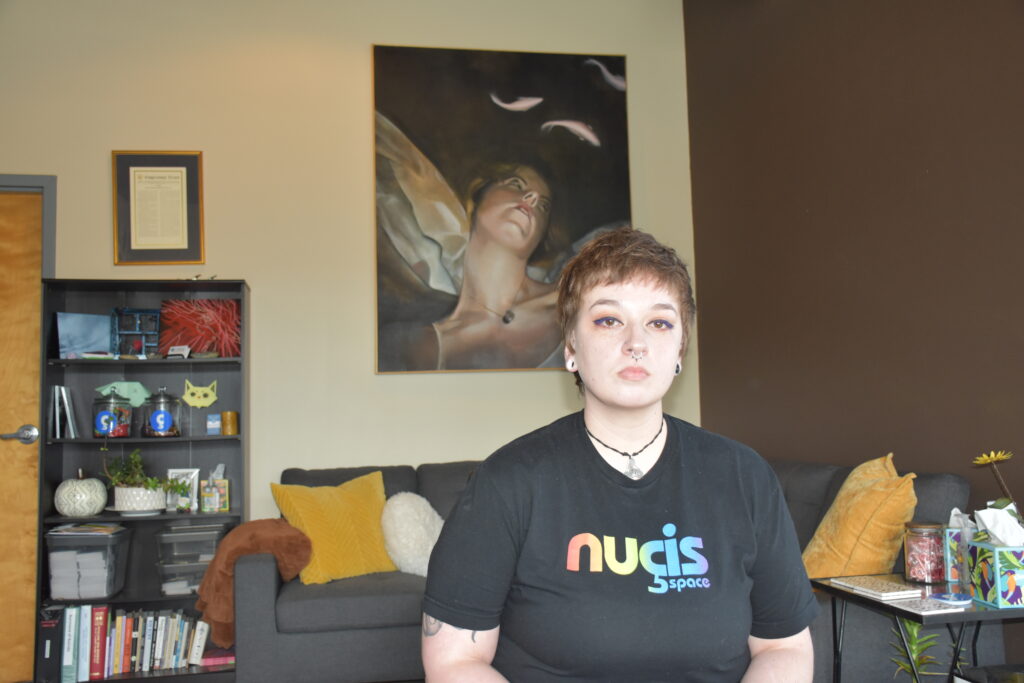
Kara Johnson, the health and wellness program manager at Nuçi’s Space, expressed how societal views that paint men as stoic, sole providers, can negatively impact young men.
“If your self worth is tied up with you being a provider or you being perceived as strong, the moment that those things become in question, it can be really harmful,” they said.
An article from Medical News Today found it’s a daily struggle for some men to deal with pressures of traditional gender roles and expectations. The study shows these gender norms begin to form across late childhood and adolescence, and become engraved in young men’s lives, persisting into later life and creating potential harm along the way.
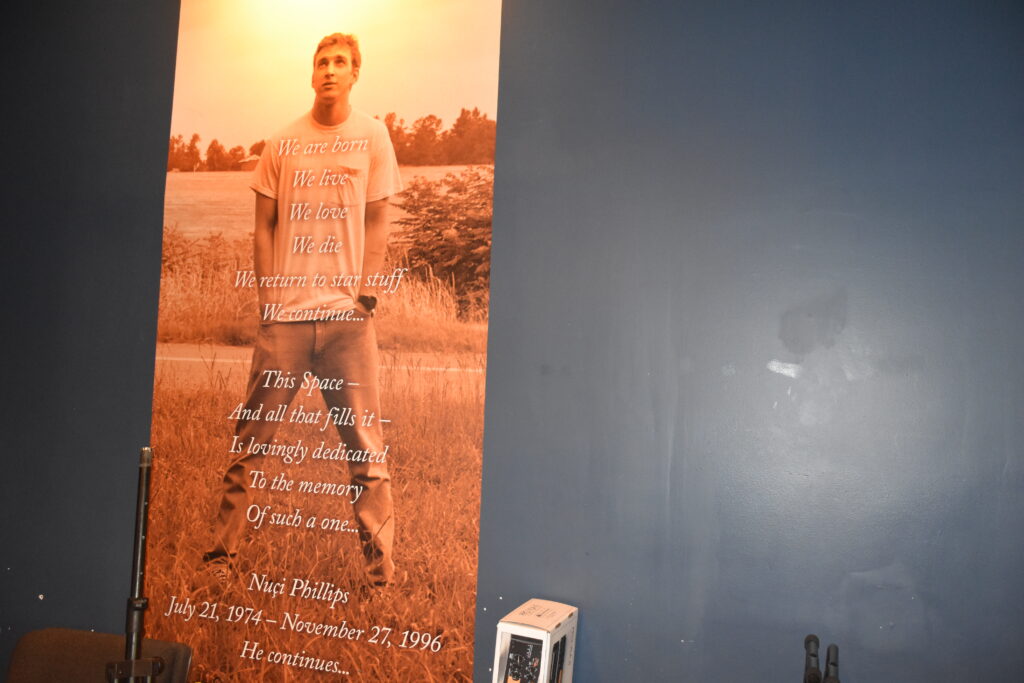
Myles Cutter, a sophomore entertainment and media studies major, thinks that men’s mental health can often be seen by others in society as “obsolete,” because men are expected to have the answers for everything in life.
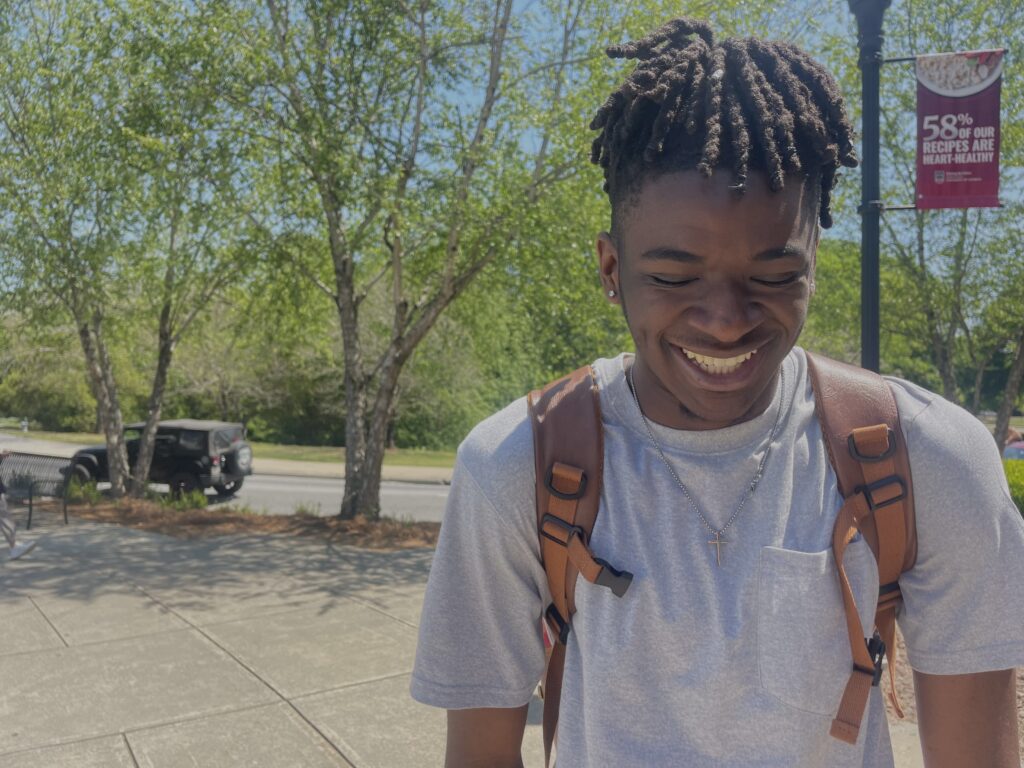
If you’re a man and you don’t have answers, or if you’re a man and you’re not strong…then you’re not being like a real man,” Cutter said.
Breaking Down Black Men’s Toughness
Although the stigma against mental health affects men across the board, it can be an even bigger barrier for people of different communities, like the Black community.
According to the National Institute on Minority Health and Health Disparities, African Americans are 20% more likely to experience psychological distress, like major depressive disorder, than white Americans.
Suicide is the third leading cause of death for Black men ages 15 to 24, and in 2018, the suicide rate for Black men was four times greater than the suicide rate for Black women.
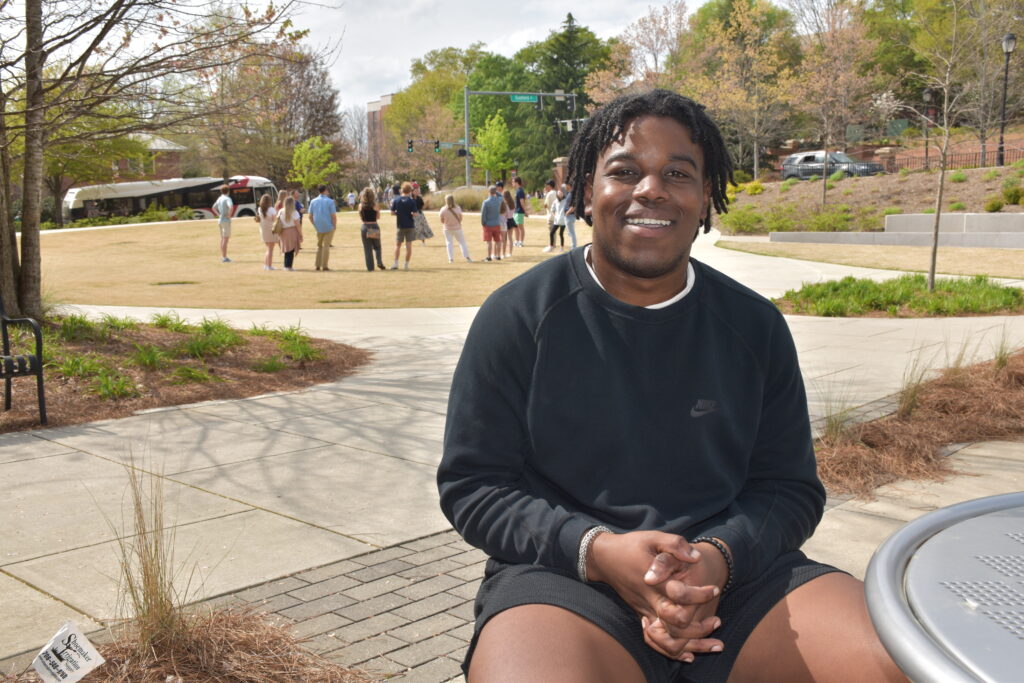
Brandon Bryant, a senior marketing and sports management major at UGA, grew up in a Caribbean household, where openly expressing his feelings and discussing mental health wasn’t part of his norm.
“My mom would always talk about how like you’re grooming African men,” Bryant said. “So like the world’s tough for them already, so you kind of, you don’t really want to wear your heart on your sleeve a little bit, because you can kind of be taken advantage of that way.”
Bryant, who was raised primarily by his mother, attributes some of the stigma of being strong to his mother who pushed him to be successful in a difficult world.
“When you’re trying to go out into the world and be like the figure of the strongest person that you can think of, nine times out of 10 if you ask a Black guy that, he’s gonna say his mom,” Bryant said.
Unlike Bryant, Cutter grew up in a household with parents who instilled in him the importance of being honest about his emotions.
“Whenever I’m dealing with other Black people, or other Black men, for example … I’m seen as like an anomaly,” he said.
According to Cutter, this stigma about mental health within the Black community stems from a complicated history of slavery and segregation in America.
Especially within the Black, American, male [community]…the added element of slavery and segregation and dehumanization and like double consciousness…I really do think that also plays a huge role,” Cutter said.
Black men also face obstacles when it comes to seeking medical help for mental health issues. The National Alliance on Mental Illness notes that one in three Black adults with mental illness receive treatment, despite the fact that they are more likely to experience distress than white adults. This is sometimes due to a lack of trust with healthcare professionals.
Cutter finds this issue is more about a lack of representation in mental health services.
“There is a benefit to purposefully putting people together based off of shared experiences, shared racial backgrounds, shared ethnic backgrounds,” he said. “And it can be seen as like not politically correct in a sense, but I think that’s like the safest thing to do as far as making sure that everybody is comfortable.”
Bryant shared a similar sentiment, emphasizing the importance of being around people who share his experiences, especially when he’s at a school in the deep south. However, he thinks there’s value in turning to those who are different from himself.
“If I’m talking to my white friend over here, and he just has no idea about certain things, there’s a certain freeness to that, that you kind of need at times,” Bryant said.
Building Support for Mental Health
When Ledford landed on therapy, he turned to UGA Student Care and Outreach for support, and received a scholarship from The Sunshine Fund, which was created to support the mental well-being of UGA students.
This scholarship money paid for his therapy.
Although Ledford had a positive experience with UGA’s mental health services, some say the school could strengthen its resources. The Counseling and Psychiatric Services at UGA, better known as CAPS, is seen as the primary resource that the school provides — which isn’t effective for some students.
“I think they [UGA] have to do a better job about broadcasting that stuff and advertising it and saying, ‘hey, there are these resources on campus, it’s not just CAPS,’” Ledford said.

In addition to CAPS and Student Care and Outreach, students can go to the University Health Center or the webpage of well-being resources, which includes links to counseling services and psychology clinics.
According to Johnson, when Nuçi’s Space connects with students from UGA, they consistently hear that there is a long waitlist and a difficulty to actually get into services.
“The need is higher than the resources that are available,” they said.
A Complicated Puzzle
Although mental health is still a stigmatized topic, for some, progress is being made.
“It’s been really eye opening to see the contrast of being in an environment…where that kind of stuff is suppressed…versus…an environment is fostered where it’s okay to talk about that kind of stuff,” Jones said.

Education and shared experiences can help move this process along.
“I think it’s just education,” Ledford said. “I think it is just a matter of getting out and trying to destigmatize therapy and saying, ‘you know, this is normal. It’s normal for you to go through problems and issues and face them, and you don’t have to do that alone.’”
Change that many say starts with the individual.
“After a while, man…you know yourself better than anybody else,” Bryant said. “After a while, you got to put the pieces back together.”
Katie Hughes is a senior journalism student at the University of Georgia with minors in political science and communication studies.







Show Comments (2)
Harold A Maio
I wonder why we continue, even in higher education, to support people who direct a stigma into minds? Why we allow their thoughts to continue to rule our minds?
Harold A Maio